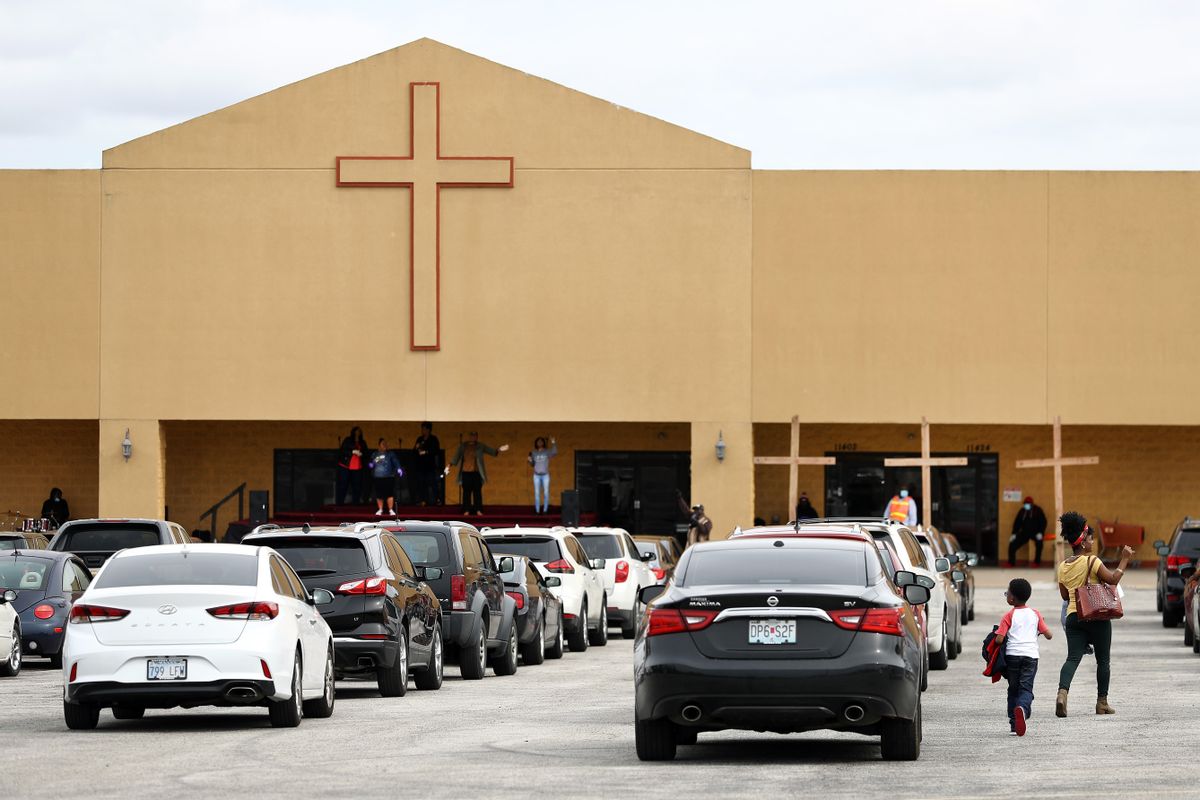In early May 2020, various websites and commentators claimed that Kansas City, Missouri, was ordering churches to turn over lists of attendees to the government. The commentary posted by evangelical groups implied that the measures persecuted Christians, with one of the more sensational takes gaining online traction.
"Never in our wildest dreams could we have imagined Nazi-like measures designed to surveil, track and spy upon what was once a FREE American people," wrote Matt Staver, founder and chairman of Liberty Counsel, a non-profit legal organization that advocates for evangelical causes, in a blog post dated May 1, 2020.
The comparison of Kansas City's public health policy amid the COVID-19 coronavirus disease pandemic to the tactics of the genocidal, fascist Third Reich was echoed on the website for conservative radio host Todd Starnes, which ran a headline reading, "'NAZI-LIKE MEASURES' Kansas City Orders Churches to Turn Over Membership Lists."
These characterizations of Kansas City's rollout of reopening measures for establishments closed due to the COVID-19 pandemic were based on a version of Kansas City Mayor Quinton Lucas’s stay-at-home order that ultimately never went into effect.
The policy, announced April 29, 2020, stipulated that beginning May 6, non-essential businesses and other establishments previously closed due to COVID-19 safety precautions could reopen but would be expected to observe social distancing practices and, depending on crowd size, implement record-keeping measures "to ensure adequate confidential public health tracing" while in operation.
In a statement, Lucas said the information would be used so that the organization itself or the city's health department "can advise people who may have been exposed to an ill person, and so that we can limit community spread to their friends or family."
The mayor stated that the city is asking establishments "like many church gatherings on Sundays, restaurants with reservations, or stylists with appointments," to keep those records on hand for 30 days in the event that the establishment turns out to be the location of a COVID-19 cluster.
The version of the order signed by Lucas on April 30 (archived here) contained language that appeared to make such record-keeping mandatory. It said that non-essential businesses, for example, “must maintain a record of time of service for customers on the premises in a seated capacity for more than ten (10) minutes.” And it appeared to condition the resumption of religious gatherings on a similar record-keeping requirement:
Religious gatherings, including, but not limited to, weddings, funerals, memorial services, and wakes, of ten (10) persons inside or ten (10) percent of building occupancy (whichever number is greater) and fifty (50) people outside may resume, provided social distancing is maintained and event organizers maintain a record of attendees. Data obtained by the Department of Public Health, pursuant to this provision, shall, to the extent allowed by law, remain confidential in accordance with professional public health standards and may be used only to address public health concerns.
That specific language never went into effect, however, because Lucas signed a new version of the order on May 4 clarifying that such record-keeping, for both business and religious gatherings, would be strictly voluntary. This was the revised language applicable to religious gatherings:
In the interest of public health and to avoid a Covid-19 outbreak in the community, event organizers should consider maintaining a record of attendees where appropriate. Attendees are not required, however, to provide their names or contact information at any religious gathering. In the event of a Covid-19 outbreak connected to a religious gathering, a religious gathering may contact those potentially exposed and, subject to confidentiality, provide the names and other relevant information voluntarily provided at the gathering to the Department of Public Health.
Liberty Counsel noted this change in a follow-up blog post on May 5, attributing the revision to an “overwhelming public outcry.” A city spokesperson released the following statement regarding the updated guidance:
After issuing last week’s Order (April 29), Mayor Lucas understood this recommendation to be one that would continue to be backed primarily by voluntary self-compliance – like many of our orders and regular ordinances. Late last week and over the weekend, the mayor felt guidance expressing the voluntary nature of the requirement would be helpful, so the City could discuss the core public health needs addressed by allowing for contact tracing, rather than engaging in ad nauseum political debate. He was able to sign the updated language Monday (May 4). For us, it’s more about contact tracing than issuing ordinance violations, but we thought guidance was vital to support public health and contact tracing capabilities.
The city's measures were drawn from guidance issued by various public health and planning organizations, including Kansas City Health Director Rex Archer, the Johns Hopkins Center for Health Security, Wisconsin Department of Health Services, American Planning Association, the Centers for Disease Control and Prevention (CDC) and the World Health Organization (WHO), according Kansas City Health spokeswoman Michelle Pekarsky. The current version of an FAQ published by the city states:
One of the primary means for transmission of COVID-19 is in-person interactions that last more than a few minutes. While not required, by recording customer names, businesses will enable the Kansas City Health Department to more quickly trace, test, and isolate individuals who may have been exposed to COVID-19 if an employee or customer had the virus at the time they frequented the business. All data will remain confidential and will be used only to address public health concerns and contact individuals who may have been exposed to COVID-19.
Kansas City is not requiring establishments, including churches, to keep lists of attendees for mandated government surveillance purposes but is instead instructing that they should consider doing so in the interests of public health. An early, unimplemented version of the mayor’s order did contain wording indicating that such record-keeping would be required, but it didn't single out churches and ultimately never went into effect as written. We therefore rate this claim “False.”

